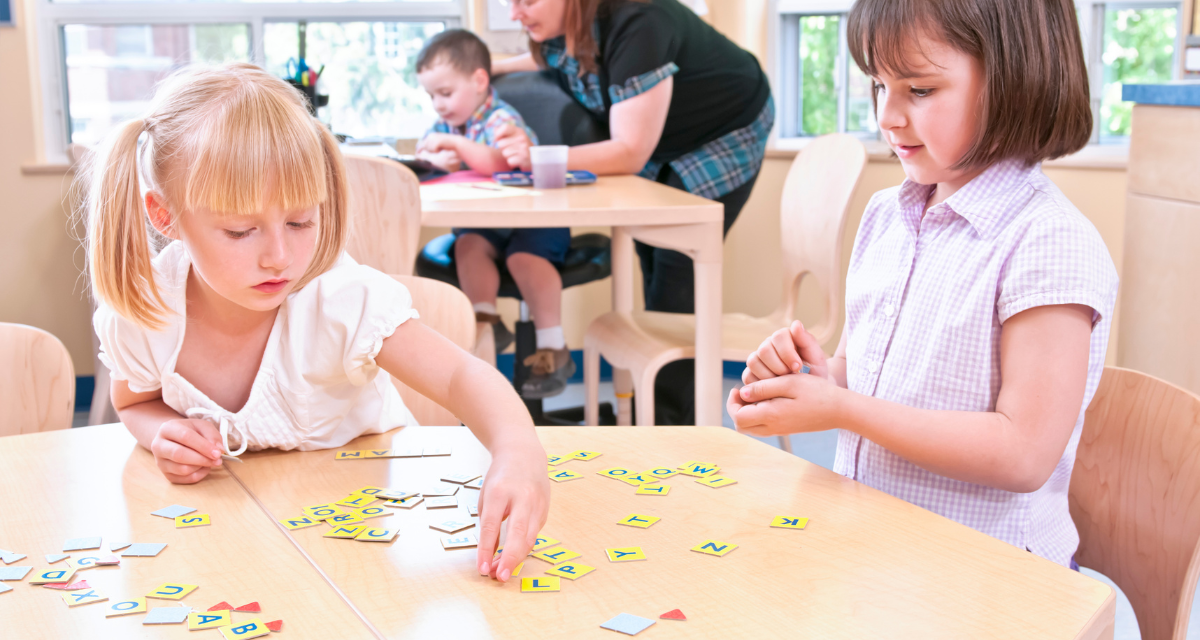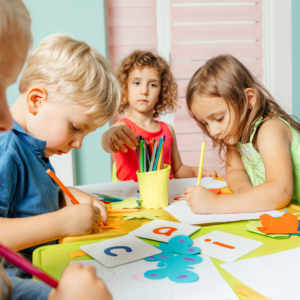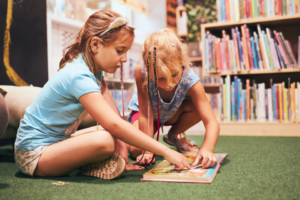
Benefits of Early Childhood Education
In Illinois, a child can begin kindergarten at the age of five as long as they have turned five years old by September first of that school year. Some parents wait until the child is six years old and better equipped for an entire school day. It is just one of the hard decisions parents must make for their children.
In any case, whether a child attends kindergarten at five or six years old, they must begin learning not only letters and numbers before then but also proper behavior and discipline. This often means the child should be in some preschool starting around three. It does not have to be a full day of preschool to reap early childhood education’s benefits. A half-day can do wonders as well.
Researched Benefits Associated with Early Childhood Education
As a parent of two toddlers and an educator of over 15 years, I can view both sides of deciding whether preschool would suit a young child. And the truth is, sending your child to preschool for the first time is almost certainly more rigid on the parent than on the child.
My three-year-old daughter started preschool six months ago, and I had a much tougher time than she did with the process. Knowing that she was not safe at home affected me initially, but now the small preschool she attends is like an extended part of our family. Plus, I have noticed several positives in the short time she has attended preschool two half-days a week.
Listening to Directions
I hate to say it, and I have heard it from hundreds of other parents over the years, but our kids seem to listen to other adults much better than they listen to their own parents. My little daughter can tune me out in a second, but she listens to the preschool teacher. In addition, it has translated over to her listening better at home.
Better Discipline
As an educator, I always prided myself on having a fun classroom, but one where the students were always displaying proper behavior. And in the few times, they didn’t, there were consequences, and the students were then able to turn it around for the better. But once again, my sweet little three-year-old daughter tells me not many times throughout the day when I try to correct her behavior. Our preschool teacher does not have this problem with her. And I am noticing the positive differences at home because of it.
Special Needs Are Identified Earlier
It can take a year or two to identify young children as having special needs in some cases once they enter public school. However, with proper documentation during a child’s time in preschool, they can receive extra support even before kindergarten. Sometimes the special needs involve autism or ADHD, but in other cases, the child needs extra attention to increase their reading, writing, or math abilities.
If this is the case with your young child, knowing they could benefit from extra support, iAchieve has plenty of professional tutors to get your toddler on track. With in-person and remote tutoring, our tutors can help narrow your child’s exact needs and create a program to assist them.
Better Social Skills
Through communicating with educators, it has been determined that most children in preschool have better social skills than those who have not when they enter elementary school. Furthermore, their emotional maturity is better as well. The trend continues even for a few more years as the child enters the later primary grades.
More Prepared as the Child Continues Through School
Children who have attended preschool have shown better scores on achievement tests, have been asked to repeat a grade less, and have fewer occurrences of being placed in special education programs.
I don’t want my children to grow up too fast as a parent. Sending them to preschool means they are no longer my little babies hanging out with me every minute of the day. Still, for their betterment, it does them wonders to be placed into an early childhood education program with other children. And in the long run, we all want our children to succeed best.
RELATED BLOG POSTS
5 Methods to Improve the Memory Power of Early Learners



